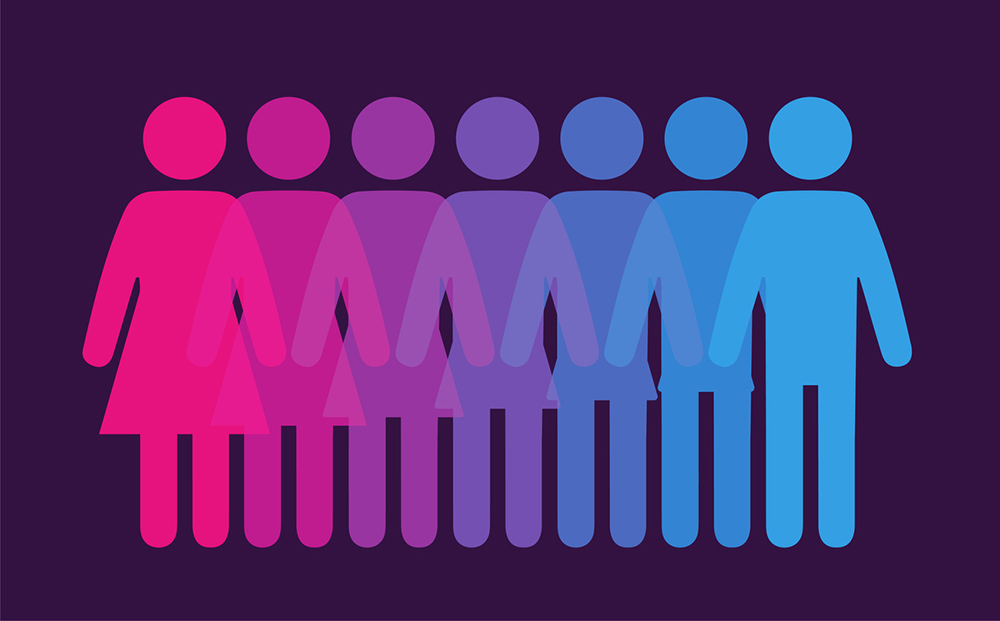A foundational tenet of academic feminism is that alleged differences between males and females are socially constructed. This credo usually maximizes the opportunities for charging sexism, yet it will be discarded if acknowledging the innate biological and psychological differences between men and women yields an additional trove of feminist complaint.
Example: According to the Yale Alumni Magazine, medical research traditionally neglected "sex and gender differences" in health. "Historically, the narrative of medicine has been driven by data derived from white men around the age of 40," says an associate dean at the Yale Medical School. Clinical trials only occasionally included females, and the results were allegedly rarely analyzed by sex.
In fact, the groundbreaking 1948 Framingham Heart Study contained a majority of female participants. A 1977 directive from the Food and Drug Administration did exclude fertile females from Stage One clinical trials, in reaction to the birth defects caused by thalidomide during pregnancy. But that directive was revoked in 1993, and since then, some studies have found that females are overrepresented in clinical trials. And the earliest health improvements in history, brought about largely by white males, were the reductions in women's and children's deaths around childbirth, beginning with the crusade of John Lister to introduce antisepsis into childbirth.)
In any case, it's mysterious why this alleged neglect of females in medical research should matter if sex differences are "socially constructed." If males and females are the same psychologically and physically before the patriarchy starts assigning sex roles, then medical research need not distinguish between males and females either.
It turns out, however, that males and females differentially respond to stress, drugs, and disease, as an initiative called Women's Health Research at Yale devotes itself to documenting. Among its findings:
Two-thirds of all Alzheimer's patients are female.
Seventy-five percent of people with autoimmune disorders are female.
Females are less likely to develop Parkinson's disease.
Adult females have twice the rate of depression as adult males.
Females have outbreaks of genital herpes at higher rates than males.
Male and female brains respond differently to early childhood neglect.
Women are more likely to abuse alcohol after trauma.
Males and females smoke for different reasons and have correspondingly different success rates with the nicotine patch.
The X and Y sex chromosomes, whose pairing determines a person's sex, influence how the other 23 chromosomes in each cell read the genetic instructions contained in DNA.
Such discoveries should be the death knell for social constructivism. They buttress the possibility that uneven sex ratios in various fields are in part the result of males and females' different average dispositions toward competition, risk, and abstract rather than people-centered work (an observation that got computer engineer James Damore fired from Google).
Yet feminist social-justice warriors proceed on several contradictory fronts simultaneously. Even as the director of the Women's Health Research at Yale initiative insists that it's time to "stop treating women as a subgroup of the human population" (because women are biologically and psychologically distinct from males), the alumni magazine and its sources carefully follow the conventions of social constructivism. "Sex" is always paired with "gender" — as in, Yale's medical school needs to "include more instruction on sex and gender differences"—lest anyone think that sex is the same thing as gender and determinative of biological reactions.
An assistant professor at the medical school suggests asking students how the prognosis of a disease changes "if the patient identifies as a woman or a man." But if, as documented, females are not just a "subgroup of the human population," but physiologically and psychologically different, how a patient "identifies" should not change the prognosis. What matters is the patient's actual biological sex. (Perhaps the professor means that a prognosis may change depending on whether the patient really is a woman or a man. The professor is simply honoring constructivist gender conventions by substituting "identify" for the ruthlessly non-constructivist "is," but implicitly acknowledging the irrelevance of such gender conventions to medical diagnosis.)
Expect to see millions of taxpayer-derived research dollars directed toward the first reading — that someone's self-declared gender identity should be taken into account in diagnosing disease — even as the evidence piles up that males and females are not a political construction, but a biological one. Given that we are now up to over 100 different gender identities, the diagnostic complications will be enormous — more fallout from academic identity politics.
This piece originally appeared at The Philadelphia Inquirer (adapted from City Journal)
______________________
Heather Mac Donald is the Thomas W. Smith fellow at the Manhattan Institute, contributing editor at City Journal, and the author of the bestselling War on Cops and the forthcoming The Diversity Delusion. Follow her on Twitter here.
This piece originally appeared in The Philadelphia Inquirer
